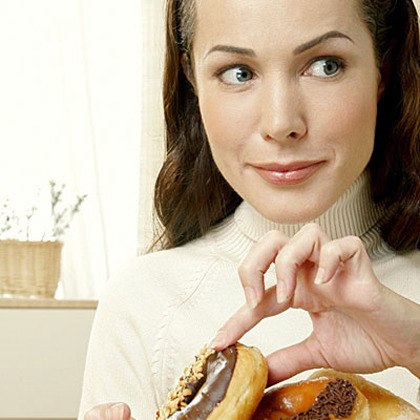In all likelihood, many Americans will gain some weight over the holidays.
It may only come to a few pounds, but statistics show that even small nudges on the scale can stubbornly persist and add up over time. The annual spike may not surprise anyone, but if partying and celebrating almost inevitably lead to overindulging, there are also other elements at play that make it harder to resist temptation this time of the year. One of them is stress.
Whether you look forward to the holiday season or dread it, either way it’s an emotionally charged time. Choosing gifts, preparing festive meals, attending family events and office parties can give cause for joy or misgivings. Feelings of loneliness and isolation can become more intense for those who feel left out.
“Many people use eating as a way to cope with difficult emotions, not only bad ones, but also happiness, excitement and celebration,” says Alexis Conason, Psy.D., a psychologist at the New York Obesity Research Center, in an interview with the Huffington Post.
To handle their emotions better, some people find their greatest comfort in food. Food can have, among other things, a numbing effect. Emotional eaters, she says, often eat to cushion themselves against the challenges they’re facing. Especially when food is as plentiful as it typically is during the holidays, these responses are easily triggered and overeating occurs as a result.
Emotional eating is commonly identified as a behavior pattern where food is used for other purposes than just stilling hunger – such as to deal with stressful situations or as a means for reward. Unlike physical hunger, which increases gradually, the emotional need for food can emerge suddenly, demanding instant attention. It cannot easily be stilled by filling one’s stomach because the emptiness it is based on may persist beyond the physical satisfaction.
Additionally, emotional eating can leave a person even more distressed by triggering feelings of guilt and shame in the wake of the eating event.
Long-range issues
Not all emotional eating leads to compulsive disorders like binge eating or bulimia nervosa. But the risk of developing dysfunctional behaviors over time is greater when emotional eating is misunderstood or unnecessarily demonized, according Dr. Pavel Somov, a psychologist and author of “Eating the Moment”. When it results in mindless overeating, it can be both psychologically and physically unhealthy, he says.
To prevent such consequences, it is important to identify the sources that trigger certain emotional responses. The next step is to find alternative solutions when negative emotions strike.
If the natural tendency is to reach for comfort food, it may be helpful not to keep certain items around the house or the office. The harder it is to get to a juicy burger, a sugary donut or a bag of candy, the better the chances will be to overcome sudden cravings. Sometimes, this will take a bit of strategic thinking, but it’s doable, even during the holidays, and over time it will get easier to avoid the traps that worked all too well in the past.
Of course, these can only serve as intermediate measures. The ultimate goal is to find the source of the inner void and fill it with something that isn’t food but is truly satisfying.
Timi Gustafson RD, LDN, is a registered dietitian, newspaper columnist, blogger and author of the book “The Healthy Diner – How to Eat Right and Still Have Fun,” which is available on her blog, “Food and Health with Timi Gustafson R.D.”, and at amazon.com. You can follow Timi on Twitter and on Facebook.


